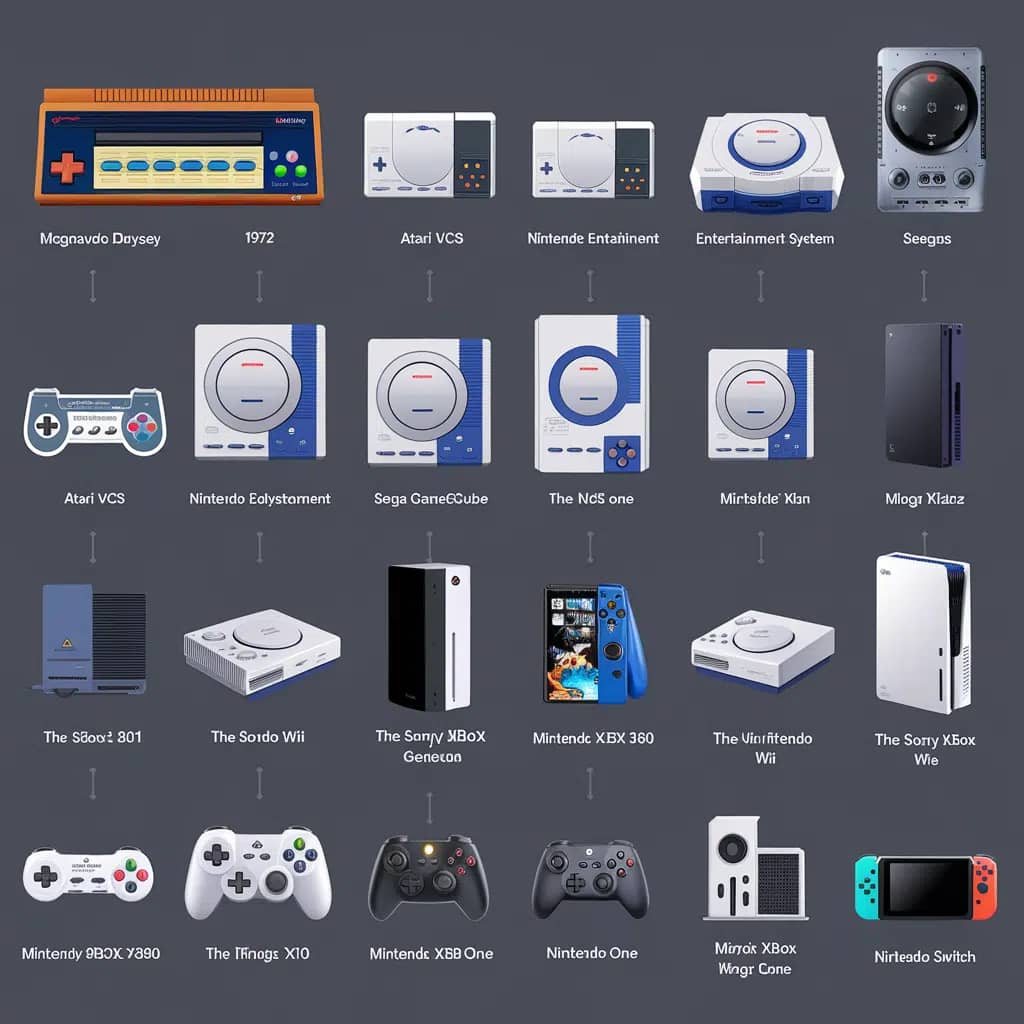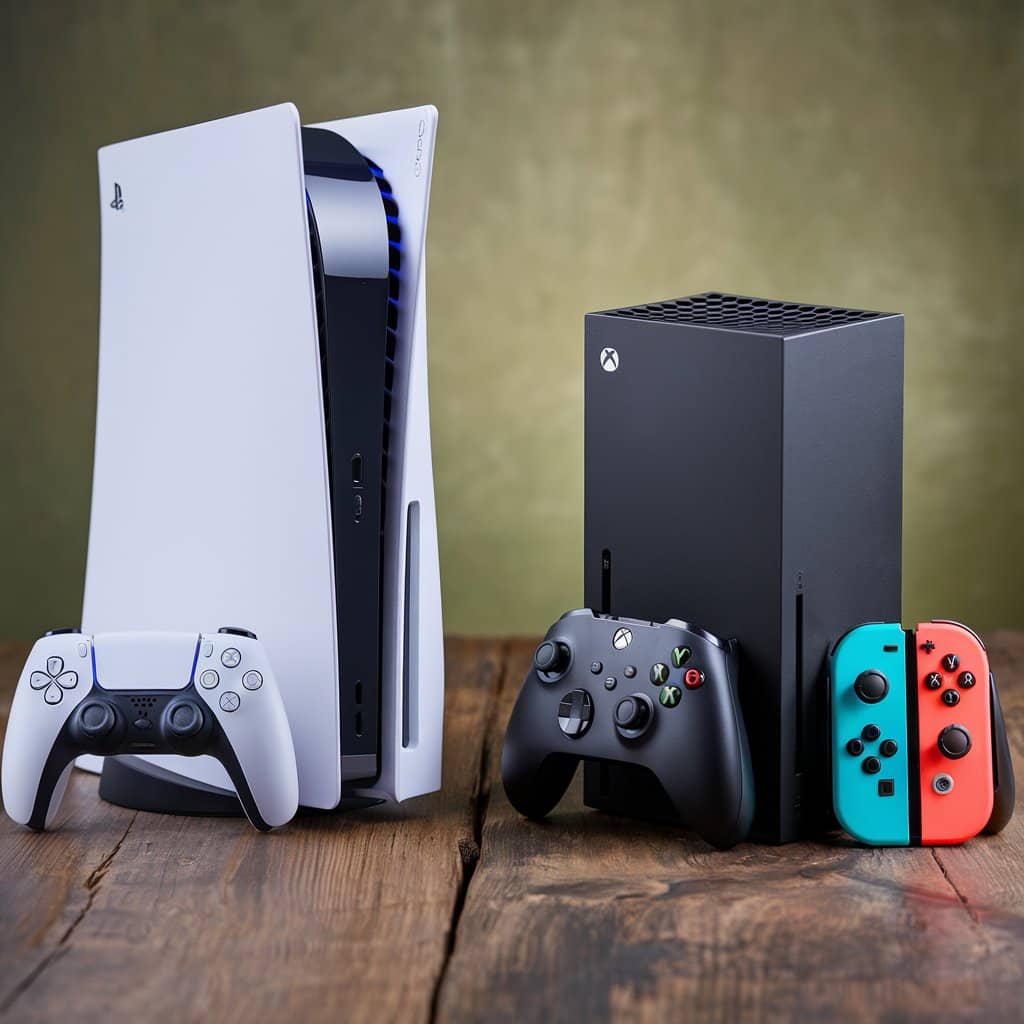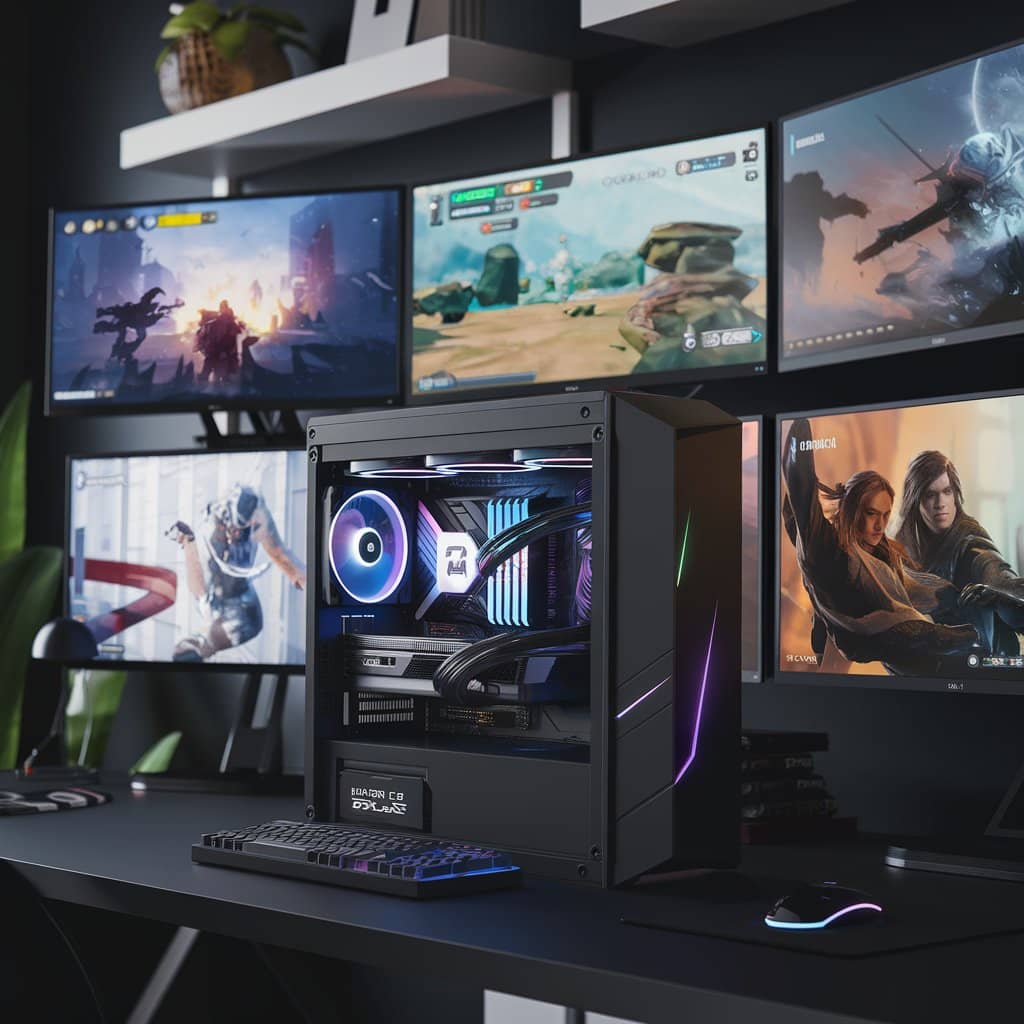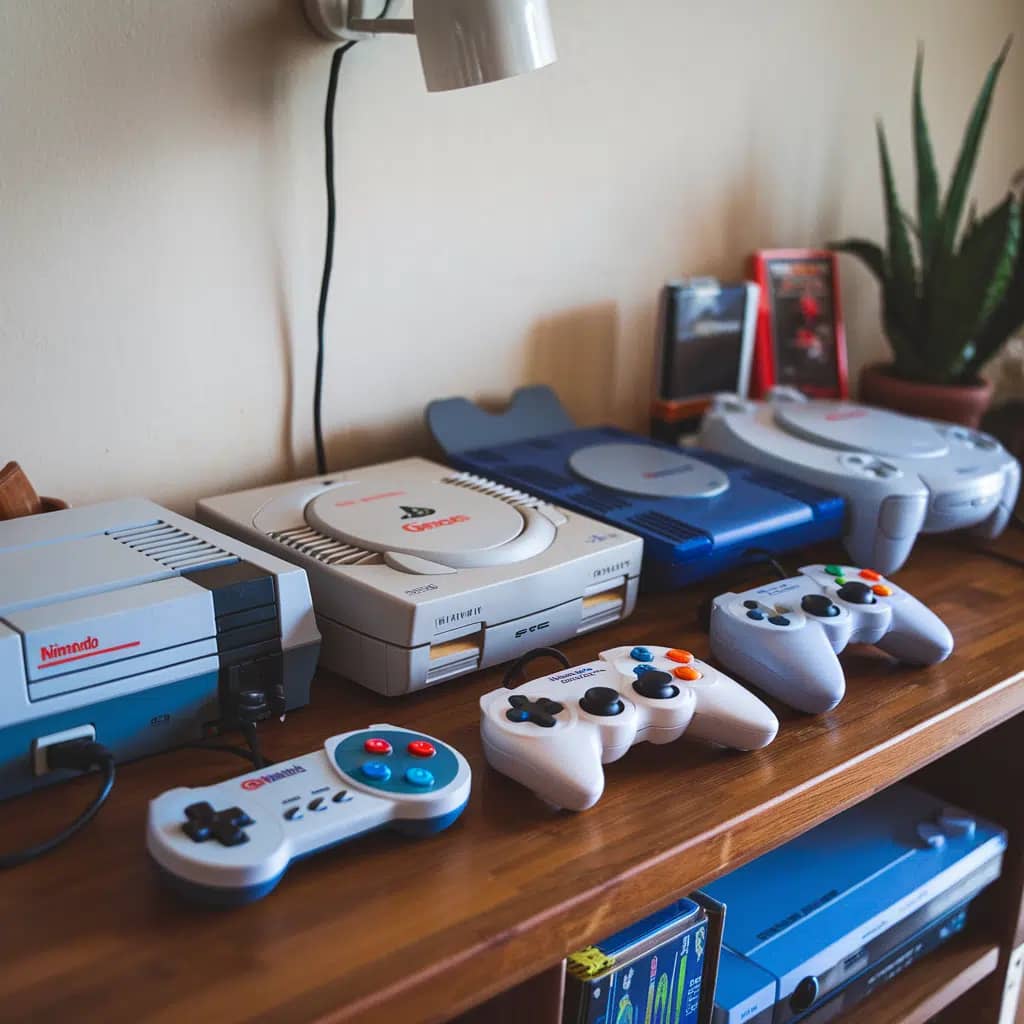Introduction :-
Attention :- The world of gaming has exploded in size, diversity, and technological advancement. From powerful consoles that can rival the best PCs in terms of graphics and performance to immersive virtual reality experiences, gaming systems have evolved dramatically.
Problem :- However, with such a wide array of gaming platforms available, it can be a challenge to figure out which one is right for you. Are you looking for something with the best graphics? Or perhaps you want the convenience of gaming on the go? Whatever your gaming preferences, choosing the right system can feel overwhelming.
Promise :- In this post, we will explore the most popular game systems, highlighting the strengths and unique features of each one. Whether you’re new to gaming or a seasoned enthusiast, we’ll provide the information you need to make an informed choice about the gaming system that best suits your style and needs.
1. The Evolution of Gaming Consoles
The history of gaming consoles is a fascinating journey from simple pixelated games to incredibly lifelike experiences. In the early days, arcade machines ruled the gaming scene, followed by the first home consoles like the Atari 2600, which brought gaming to living rooms worldwide.

In the late ’80s and early ’90s, systems like the Super Nintendo Entertainment System (SNES) and Sega Genesis ushered in a golden age of 16-bit graphics and unforgettable titles like Super Mario Bros. and Sonic the Hedgehog. Then, the leap to 3D graphics and the rise of consoles like the Sony PlayStation and Nintendo 64 brought forth the next generation of gaming.
As the years have passed, consoles have evolved, with each generation offering faster processing power, higher-definition graphics, and more immersive gaming experiences. Today, we have ultra-powerful systems like the PlayStation 5, Xbox Series X, and the hybrid Nintendo Switch, all designed to take gaming to the next level.
2. The Big Three: Leading Gaming Consoles

Sony Play Station
Sony’s PlayStation consoles have consistently been at the forefront of the gaming industry. The PlayStation 5 (PS5) is the latest and most powerful iteration, featuring a custom AMD Ryzen CPU, an ultra-fast SSD, and an advanced Ray Tracing graphics engine, allowing for incredible realism in both visuals and physics. One of the standout features of the PS5 is its DualSense controller, which offers haptic feedback and adaptive triggers, providing a tactile sensation of in-game actions like shooting, running, and even walking on different surfaces.
Sony’s strong suit lies in its catalog of exclusive games. Titles like Demon’s Souls, Ratchet & Clank: Rift Apart, Spider-Man: Miles Morales, and The Last of Us Part II have set the bar for what high-quality games can look and feel like. These exclusives are often optimized to take full advantage of the hardware, pushing the boundaries of gaming on consoles.
The PlayStation ecosystem is a powerful choice for players who appreciate rich narratives, single-player experiences, and advanced technology.
Microsoft Xbox
Microsoft’s Xbox Series X and Xbox Series S offer next-gen gaming performance with a focus on high-quality graphics and fast load times. The Series X, in particular, is touted as the most powerful console ever built, supporting 4K gaming at 120 frames per second and featuring a 12 teraflop GPU for incredible graphics rendering.
The Xbox Series S provides an affordable alternative with lower specs, but it still delivers solid performance at 1440p resolution and supports upscaled 4K for a great gaming experience.
A key differentiator for Xbox is Xbox Game Pass, a subscription service that gives players access to over 100 games for a flat monthly fee. Game Pass includes not only first-party Microsoft titles but also third-party games and even new releases on launch day. Xbox also boasts backward compatibility, so players can enjoy older Xbox One, Xbox 360, and even original Xbox games on the Series X and Series S.
For gamers who enjoy value, flexibility, and access to a broad library of games without breaking the bank, Xbox’s Game Pass is a compelling reason to join the platform.
Nintendo Switch
The Nintendo Switch stands out as the only hybrid gaming console, allowing players to seamlessly switch between handheld and docked modes. Whether you’re playing on your TV or taking your games on the go, the Switch offers unmatched portability and flexibility.
One of the key factors that make the Switch so appealing is its catalog of exclusive games. Nintendo has created some of the most beloved franchises in gaming history, including Super Mario, Zelda, Pokémon, and Animal Crossing. Games like The Legend of Zelda: Breath of the Wild and Super Mario Odyssey are widely regarded as masterpieces, offering an engaging mix of adventure, puzzles, and exploration.
Additionally, the Nintendo Switch Lite offers a more affordable, handheld-only option for those who don’t need a docking station. The Nintendo Switch, with its strong emphasis on family-friendly experiences and its incredible library of first-party games, is perfect for gamers of all ages.
3. PC Gaming: The Power and Flexibility

While consoles are excellent for plug-and-play simplicity, PC gaming offers a level of flexibility and power that no console can match. A gaming PC allows users to customize their system, from selecting high-performance components to upgrading parts as new technologies emerge.
PCs offer the best graphics on the market, with cutting-edge GPUs like the NVIDIA RTX 4080 and AMD Radeon RX 6800 XT, providing support for 4K gaming at high frame rates and ray tracing for more lifelike graphics. If you’re a competitive gamer or someone who values ultra-fast performance, gaming PCs can reach 144Hz or 240Hz refresh rates, offering a smoother experience than any console can provide.
Another advantage of PC gaming is access to various digital storefronts like Steam, Epic Games Store, and GOG. These platforms offer a massive library of titles, from AAA blockbusters to indie games, often at discounted prices. Plus, with powerful hardware, modding is a big part of the PC gaming experience. If you enjoy customizing your games or playing community-made mods, PC is the way to go.
For esports enthusiasts and players who want the highest-quality experience possible, PC gaming is the go-to platform.
4. Handheld Consoles: Gaming on the Go

Handheld gaming has made a significant comeback with devices like the Nintendo Switch and Steam Deck.
Nintendo 3DS and 2DS
Though no longer in production, the Nintendo 3DS and 2DS were revolutionary systems for portable gaming. The 3DS featured autostereoscopic 3D (3D without glasses), which was groundbreaking at the time. With a library that included titles like Pokémon Sun and Moon, Super Mario 3D Land, and The Legend of Zelda: A Link Between Worlds, the 3DS became one of Nintendo’s most beloved systems.
Valve Steam Deck
The Steam Deck is a handheld gaming PC that runs your Steam library. This device offers the power of PC gaming with the portability of a handheld, capable of running AAA games at high settings. It is quickly gaining popularity among gamers who want the flexibility to play on the go but don’t want to compromise on performance. The Steam Deck also supports mods, community content, and custom game installations, providing an open experience for PC gamers on a portable device.
5. Retro Gaming Consoles

Retro gaming has seen a revival in recent years, thanks to mini consoles and emulator systems that allow players to relive the magic of older systems. Nintendo and Sega have released mini versions of their classic systems, such as the NES Mini and Sega Genesis Mini, providing access to some of the most iconic games of the past, such as Super Mario Bros. and Sonic the Hedgehog.
Emulation has also become a popular way to enjoy retro games on modern hardware. With tools like RetroPie and OpenEmu, players can load games from a variety of retro consoles, allowing them to enjoy a wide array of vintage titles on current PCs and consoles.
6. Mobile Gaming: The Accessible Revolution

Mobile gaming has emerged as the dominant form of gaming for many people worldwide. Platforms like Apple Arcade and Google Play Games host thousands of games across various genres, including casual games, strategy, role-playing games, and even full-fledged action titles.
Popular mobile games like PUBG Mobile, Fortnite, and Genshin Impact offer console-like experiences on smartphones, with the added benefit of being able to play anywhere. For gamers who want something light and accessible, mobile gaming offers convenience at a low entry cost.
7. Virtual Reality (VR) and Augmented Reality (AR)

Virtual Reality (VR) has brought a whole new level of immersion to gaming. Systems like the Oculus Quest 2 and PlayStation VR offer experiences that allow players to physically move through the game world, with headsets and controllers that track motion for a more lifelike experience.
VR titles like Beat Saber, Half-Life: Alyx, and No Man’s Sky VR have set new standards for what’s possible in immersive gaming. Although the hardware is expensive and the experience requires significant space, VR gaming is changing the way players interact with games.
Augmented Reality (AR), while not as widely adopted as VR, has seen its own rise with games like Pokémon Go and the upcoming Apple Vision Pro, which promises to blend the digital and physical worlds in ways we’ve never seen before.
8. Cloud Gaming: The Future of Gaming

Cloud gaming allows players to stream games directly to their devices, bypassing the need for powerful hardware. Services like Xbox Cloud Gaming, NVIDIA GeForce Now, and Google Stadia are helping to make gaming more accessible by offering a catalog of games that can be played on any device with an internet connection.
While the technology is still maturing, the potential for cloud gaming is vast, especially for those who want access to the latest games without the need to upgrade their console or PC every few years.
9. Gaming in the Future

Looking to the future, technologies like AI, quantum computing, and 8K resolution will continue to shape the gaming landscape. As internet speeds improve and cloud gaming becomes more widespread, players will have more access to powerful gaming experiences without needing to invest in expensive hardware. Furthermore, the integration of VR, AR, and AI into mainstream games could create worlds and experiences that are far beyond what we can imagine today.
Conclusion
Gaming systems are more diverse and powerful than ever before, with each platform offering unique features and experiences. Whether you prefer the power of a PlayStation or Xbox console, the flexibility of a Nintendo Switch, the customization of a gaming PC, or the immersive nature of VR, there’s a gaming system out there to fit your preferences. With cloud gaming and the future of immersive technologies on the horizon, gaming will continue to evolve in exciting ways.